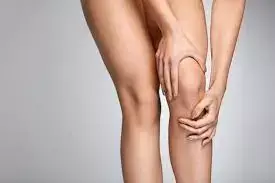- Home
- Medical news & Guidelines
- Anesthesiology
- Cardiology and CTVS
- Critical Care
- Dentistry
- Dermatology
- Diabetes and Endocrinology
- ENT
- Gastroenterology
- Medicine
- Nephrology
- Neurology
- Obstretics-Gynaecology
- Oncology
- Ophthalmology
- Orthopaedics
- Pediatrics-Neonatology
- Psychiatry
- Pulmonology
- Radiology
- Surgery
- Urology
- Laboratory Medicine
- Diet
- Nursing
- Paramedical
- Physiotherapy
- Health news
- Fact Check
- Bone Health Fact Check
- Brain Health Fact Check
- Cancer Related Fact Check
- Child Care Fact Check
- Dental and oral health fact check
- Diabetes and metabolic health fact check
- Diet and Nutrition Fact Check
- Eye and ENT Care Fact Check
- Fitness fact check
- Gut health fact check
- Heart health fact check
- Kidney health fact check
- Medical education fact check
- Men's health fact check
- Respiratory fact check
- Skin and hair care fact check
- Vaccine and Immunization fact check
- Women's health fact check
- AYUSH
- State News
- Andaman and Nicobar Islands
- Andhra Pradesh
- Arunachal Pradesh
- Assam
- Bihar
- Chandigarh
- Chattisgarh
- Dadra and Nagar Haveli
- Daman and Diu
- Delhi
- Goa
- Gujarat
- Haryana
- Himachal Pradesh
- Jammu & Kashmir
- Jharkhand
- Karnataka
- Kerala
- Ladakh
- Lakshadweep
- Madhya Pradesh
- Maharashtra
- Manipur
- Meghalaya
- Mizoram
- Nagaland
- Odisha
- Puducherry
- Punjab
- Rajasthan
- Sikkim
- Tamil Nadu
- Telangana
- Tripura
- Uttar Pradesh
- Uttrakhand
- West Bengal
- Medical Education
- Industry
Higher probability of ACL re-injury after first injury finds BMJ study

After return to sports (RTS), patients with generalized joint hypermobility (GJH) who have ACL-Reconstruction have probabilities of re-injuring their anterior cruciate ligament (ACL) that are more than five times higher, says an article published in British Journal of Sports Medicine.
After anterior cruciate ligament repair (ACL-R), a significant number of patients run the risk of suffering a second ACL injury. When taking into account both ipsilateral knee re-injury and new damage to the contralateral knee, the second ACL injury rate in the young and active population may reach as high as 23%. In order to ascertain the 12-month risk of a second anterior cruciate ligament injury in a group of patients with and without generalized joint hypermobility who return to sports at competition level following ACL restoration, Bálint Zsidai and colleagues conducted this study.
For patients aged 16 to 50 who received ACL-R treatment between 2014 and 2019, data were taken from a registry specifically for rehabilitation. Patients with and without GJH were compared with regard to demographics, outcome information, and the incidence of a second ACL damage within 12 months following RTS, defined as a new ipsilateral or contralateral ACL. To ascertain the impact of GJH and time of RTS on the likelihood of a second ACL injury, as well as the likelihood that an ACL-R would survive without suffering a second ACL injury following RTS, univariable logistic regression and Cox proportional hazards regression were used.
The key findings of this study were:
There were 153 patients in all, 50 (22.2%) of whom had GJH, and 175 (77.8%) did not.
A second ACL injury occurred in 7 (14.0%) patients with GJH and 5 (2.9%) patients without GJH within 12 months after RTS (p=0.012). individuals with GJH had a 5.53 greater chance of suffering a second ipsilateral or contralateral ACL damage than individuals without GJH (p=0.014).
In patients with GJH, the lifetime HR of a subsequent ACL injury following RTS was 4.24. Patient-reported outcome measures showed no between-group differences.
Reference:
Zsidai, B., Piussi, R., Thomeé, R., Sundemo, D., Musahl, V., Samuelsson, K., & Hamrin Senorski, E. (2023). Generalised joint hypermobility leads to increased odds of sustaining a second ACL injury within 12 months of return to sport after ACL reconstruction. In British Journal of Sports Medicine (p. bjsports-2022-106183). BMJ. https://doi.org/10.1136/bjsports-2022-106183
Neuroscience Masters graduate
Jacinthlyn Sylvia, a Neuroscience Master's graduate from Chennai has worked extensively in deciphering the neurobiology of cognition and motor control in aging. She also has spread-out exposure to Neurosurgery from her Bachelor’s. She is currently involved in active Neuro-Oncology research. She is an upcoming neuroscientist with a fiery passion for writing. Her news cover at Medical Dialogues feature recent discoveries and updates from the healthcare and biomedical research fields. She can be reached at editorial@medicaldialogues.in
Dr Kamal Kant Kohli-MBBS, DTCD- a chest specialist with more than 30 years of practice and a flair for writing clinical articles, Dr Kamal Kant Kohli joined Medical Dialogues as a Chief Editor of Medical News. Besides writing articles, as an editor, he proofreads and verifies all the medical content published on Medical Dialogues including those coming from journals, studies,medical conferences,guidelines etc. Email: drkohli@medicaldialogues.in. Contact no. 011-43720751


